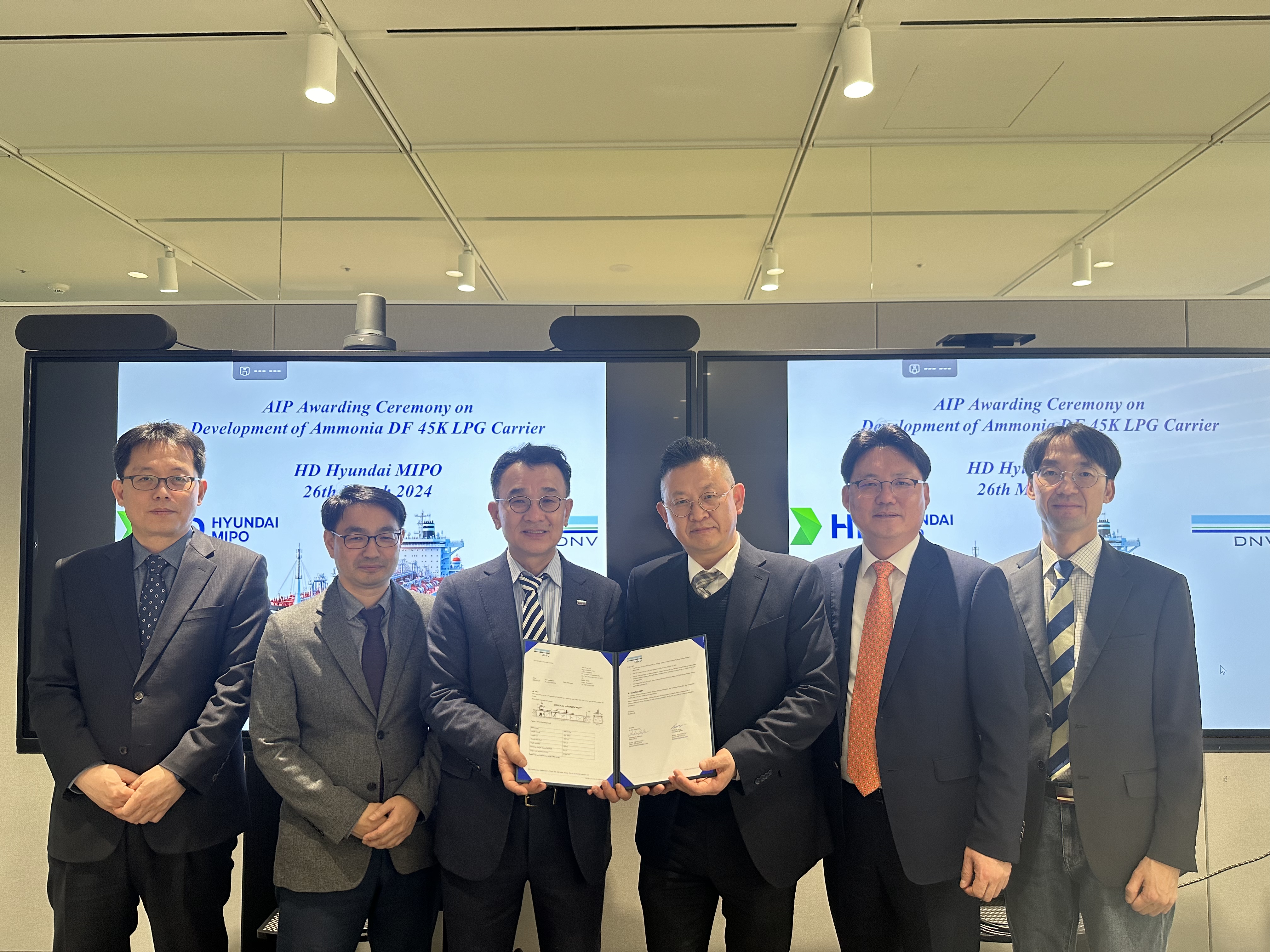DNV has awarded HD Hyundai Mipo Dockyard an Approval in Principle (AiP) for the design of ammonia dual fuel 45,000 m3 LPG carriers.
The presentation took place at the HD Hyundai Global R&D Center (GRC) in Seongnam, Korea. HD Hyundai Mipo (HMD), who have developed the basic ship design, provided detailed engine specifications and operational data from global engine maker, WinGD, and reviewed the safety and suitability of the design with DNV. The designs are based around a new 10,000 horsepower dual-fuel two-stroke engine that selectively utilize ammonia or Marine Diesel Oil.

“These vessels are designed to pre-emptively meet the IMO’s greenhouse gas (GHG) strategy to reduce the total amount of GHGs emitted by shipping by 100% from 2008 levels in 2050. The new dual fuel propulsion system will set a new standard in emissions reduction – emitting no CO2 during combustion.
In addition, the 'ammonia leak prevention system' completely blocks external leakage of ammonia. This highlights HMD’s all-out effort to lead the industry in the eco-friendly ship sector,” said Lee Dong Jin, Head of HMD’s Basic Design Division.
Vidar Dolonen, DNV Regional Manager Korea & Japan, said: "We are very pleased to be able to award HMD this AiP. Ammonia is a very promising fuel option for shipping, and we are seeing growing interest in how we can safely and effectively deploy this technology. The AiP underscores that the maritime industry is not only looking to meet compliance targets, but that forward looking partners are committed to using their experience and expertise to embrace sustainable solutions today. We applaud HMD for their innovative spirit in developing this concept and we look forward to collaborating further to help realize it.
Ammonia is attracting attention from the global shipping industry as a potential zero-carbon fuel, especially when produced from renewably sourced hydrogen as “green” ammonia. It can be stored in a pressurized tank (about 10 bar) or a low-temperature tank (-34℃) without cryogenic technology. In addition, the energy density of liquefied ammonia is higher than that of liquefied hydrogen, making its transport more efficient.
An Approval in Principle (AiP) is an independent assessment of a concept within an agreed framework, confirming that the design is feasible, and no significant obstacles exist to prevent the concept from being realized.